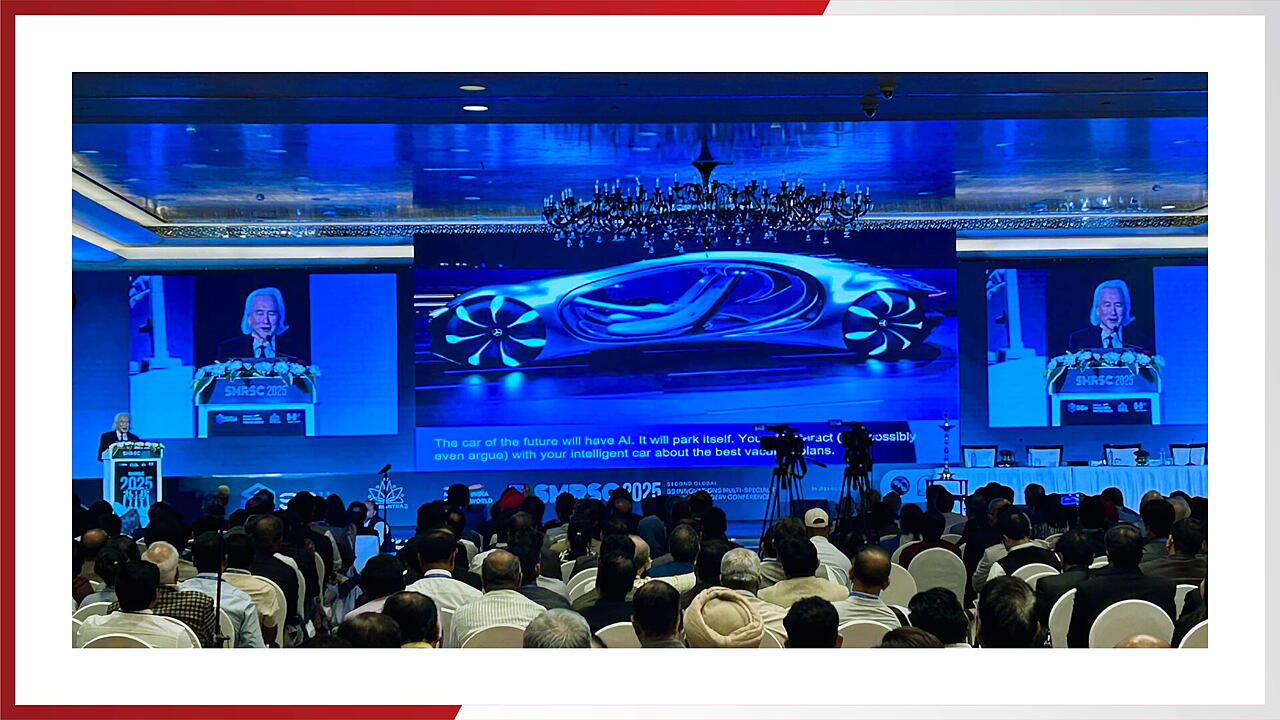
In the enlightening words of physicist Dr Michio Kaku, Artificial Intelligence (AI) forms part of what he terms the 'fourth wave' of technological innovation, which will significantly reshape the automotive industry. Kaku categorises technological progression into waves, with the current era defined by breakthroughs in artificial intelligence, nanotechnology, and biotechnology. Particularly within automotive technology, AI stands poised to dramatically enhance vehicle capabilities, safety, and user experience, parallel reshaping a new era for automotive manufacturers.
Autonomous Driving: Vehicles That Think
Autonomy in vehicles is developing rapidly. Dr Kaku envisages future automobiles as fully intelligent entities, significantly changing the human-vehicle interaction. Autonomous vehicles will soon have enhanced cognitive abilities to understand human commands and make independent decisions. Kaku notes that drivers may find themselves engaging in debates with their cars, discussing optimal routes and strategies for reaching destinations. Such intelligent decision-making will be critical in overcoming the limitations of current semi-autonomous systems, enabling cars to fully manage complex urban and rural scenarios without human intervention.
Vehicle-to-User & Vehicle-to-Infrastructure Comms
AI-driven vehicles will also fundamentally change user convenience, Kaku predicts. Through advanced interfaces, cars will autonomously manage parking, charging, and retrieval, significantly reducing human effort. Drivers already can use voice commands for certain features in a vehicle. But developing this further, voice commands via wearable technology can instruct vehicles remotely, enhancing convenience. You may be able to ask your electric vehicle to find a charger and charge its battery - meaning intelligent vehicles will seamlessly interact with smart infrastructure, also thereby optimising traffic flow, reducing congestion, and improving overall road safety.

Artificial intelligence will elevate vehicle safety to new standards, Dr Kaku asserts. Vehicles equipped with advanced AI will predict potential accidents, respond to emergency situations with precision, and offer sophisticated driver assistance. AI’s ability to process massive volumes of data instantly means that future cars will not only react but also anticipate hazards, ensuring unprecedented levels of safety and protection for passengers.
Designing Vehicles Via AI & Virtual Reality
Another ongoing development which has a significant impact of AI, according to Kaku, lies in vehicle design and manufacturing. Through augmented reality (AR) and virtual reality (VR), designers and engineers will utilise AI to optimise design processes, significantly reducing development times and improving outcomes. Digital twins of vehicles, created and tested virtually, will eliminate many traditional physical prototyping stages, leading to faster, safer, and more efficient automotive development cycles.
As a word of warning, Dr Kaku cautions about the challenges accompanying widespread AI integration. The potential for AI to make autonomous decisions introduces profound ethical and regulatory dilemmas, such as liability in the case of autonomous vehicle accidents and the security of personal data gathered by intelligent systems. As the automotive industry becomes increasingly dependent on AI, stringent regulations will be required to govern data privacy, vehicle safety standards, and AI decision-making transparency.
Quantum Computing
Looking through a longer lens, Dr Kaku predicts quantum computing as the next leap that could transform the automotive industry even further. Quantum computers, capable of processing complex algorithms far beyond current digital systems, will enable advanced simulations of vehicle dynamics, material science breakthroughs, and sophisticated navigation algorithms, fundamentally reshaping vehicle performance and efficiency.

